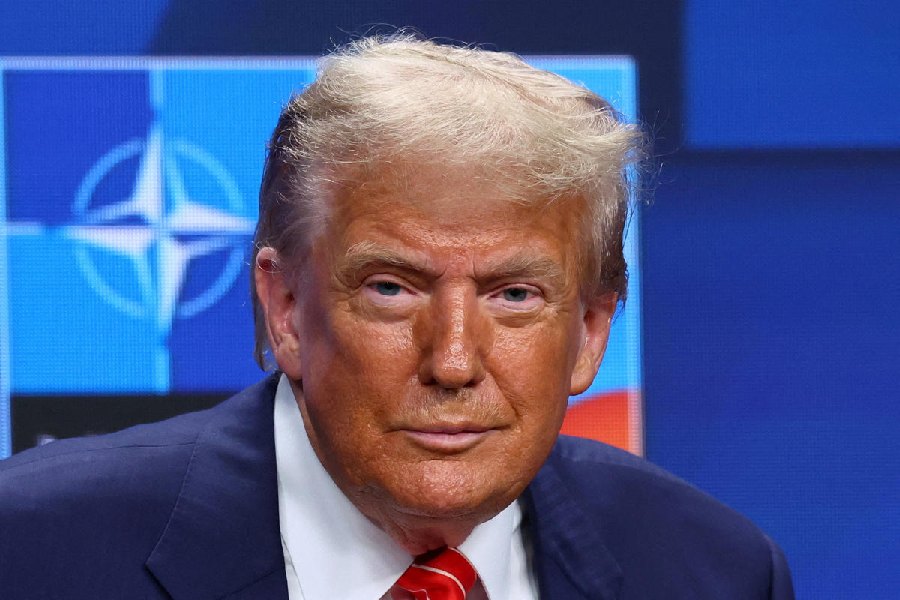US President Donald Trump has confirmed that sharply higher tariffs on numerous countries will go into effect on August 1, marking a dramatic escalation in the trade war he initiated earlier this year. While the deadline appears fixed, Trump suggested there remains some room for negotiation.
“I would say firm, but not 100% firm,” Trump said when asked about the August 1 deadline. “If they call up and they say we'd like to do something a different way, we're going to be open to that.”
The announcement came as the Trump administration dispatched a series of formal letters to 14 countries, including Japan, South Korea, Bangladesh, Thailand, and Tunisia, detailing new reciprocal tariff rates. Trump emphasised the United States would match any retaliatory measures with equal or greater tariffs.
“If for any reason you decide to raise your tariffs, then, whatever the number you choose to raise them by, will be added onto the 25 per cent that we charge,” Trump said in letters shared via his Truth Social platform, specifically addressing leaders in Japan and South Korea.
The new tariffs — ranging from 25 per cent to 40 per cent — will not stack on top of previously announced sector-specific tariffs such as those on steel, aluminium, and automobiles. For example, Japanese vehicle imports will remain subject to the current 25 per cent rate, rather than escalating to 50 per cent.
Impact on global markets
The financial markets reacted negatively to the renewed trade threats. The S&P 500 slid by 0.8 per cent, its sharpest drop in three weeks, while shares of Japanese auto giants Toyota and Honda dropped by 4.0 per cent and 3.9 per cent, respectively. The US dollar surged against both the Japanese yen and South Korean won.
“Tariff talk has sucked the wind out of the sails of the market,” said Brian Jacobsen, chief economist at Annex Wealth Management. He noted that most announced rates were “rounded down,” but the administration’s messaging felt like "take it or leave it" offers.
India gets temporary relief
India, which was included in the original list of targeted countries in Trump's April 2 announcement (with a proposed 26 per cent tariff), did not receive a tariff letter this week. Instead, the White House announced an extension of the suspension of reciprocal tariffs until August 1, offering more time for negotiations on an interim trade deal.
"...based on additional information and recommendations from various senior officials, including information on the status of discussions with trading partners, that it is necessary and appropriate to extend the suspension effectuated by Executive Order 14266 until 12:01 a.m. Eastern daylight time on August 1, 2025," the White House stated.
Bangladesh hit with 35% tariff
Among the harshest measures was a 35 per cent tariff on all products from Bangladesh, as conveyed in a letter to Muhammad Yunus, chief advisor to the interim government.
“We will charge Bangladesh a tariff of only 35% on any and all Bangladeshi products sent into the United States, separate from all sectoral tariffs,” Trump wrote. “Please understand that the 35% number is far less than what is needed to eliminate the trade deficit disparity we have with your country.”
He warned against attempts to evade tariffs via transhipment and suggested the tariffs could change based on future relations.
“If Bangladesh wishes to open its 'closed' trading markets to the US and eliminate its tariff and non-tariff, policies and trade barriers, we will perhaps consider an adjustment to this letter,” Trump added.
EU and Brics also on notice
Although the European Union did not receive a tariff letter, EU officials confirmed ongoing efforts to finalise a deal with the US before a July 9 target. A spokesperson said European Commission President Ursula von der Leyen had a “good exchange” with Trump, but no breakthrough was confirmed.
Trump has also threatened a 17 per cent tariff on the EU’s food and agriculture exports and warned Brics nations – Brazil, Russia, India and China – of additional 10 per cent tariffs if they adopt what he called “anti-American” policies.
Uncertain road ahead
Trade negotiations remain fluid. Only two agreements — with Britain and Vietnam — have been finalised. Other countries face mounting pressure ahead of the August 1 deadline.
Wendy Cutler, vice president at the Asia Society Policy Institute, called the tariff hikes on close allies “unfortunate” but noted there was still a chance for a deal.
“While the news is disappointing, it does not mean the game is over,” she said.
US treasury secretary Scott Bessent added that he expects “several trade announcements” within the next 48 hours and that his inbox is full of last-minute offers from countries scrambling to avoid the looming tariffs.
With inputs from agencies










